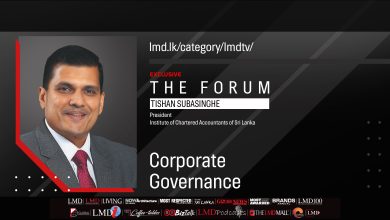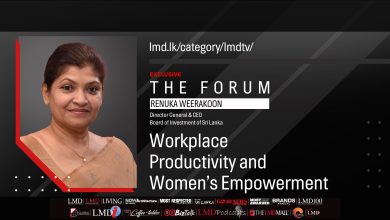LMD TV
Paul Ash, President of the Chartered Institute of Management Accountants (CIMA) and Chair of the Association of International Certified Professional Accountants (AICPA), said of the current state of global business: “We are really in a state of uncertainty.”
He elaborated by saying that the world had seen “layer upon layer of problems – from the health point of view of COVID and monkeypox to war – and the uncertainty that these bring, and the consequences that have led to the financial crisis.”
Financial services professionals are at the centre of business and have stepped up to deal with the extraordinary amount of change and disruption. They drive effective business management in any economic climate and even in challenging times such as these, their expertise and skill comes to the fore.
“We have become the value partner of all organisations they desperately need. I think we have truly delivered on the purpose of our profession,” he said with pride.
In addition, Paul Ash contended that to confront these issues, ‘learning, unlearning and relearning’ is necessary, and said: “In order to step up and meet the challenges of today that have been thrown up by all this uncertainty and disruption, we must have the ability to unlearn what we’ve learned and then relearn, and apply new skills to these problems.”
“Growing our digital skills and mindset has been of paramount importance,” he continued, and noted: “I don’t think we would’ve been so effective in what we’ve been able to achieve over the last two years, had it not been for the advances in AI in robotics.”
Expressing his views on the current global business landscape, Ash stated: “It’s a tsunami building for many businesses; we can’t escape that. But it is also an opportunity.” And Ash added that “whatever the situation, there are opportunities.”
“If you look at the war in Ukraine, in terms of the shortage in the supply of grain and wheat in particular… there are alternative foods around the world,” he pointed out, adding that it’s up to people to innovative to step up to the plate and adapt.
“Accelerate the transformation in digital technology and find new ways of working in a hybrid environment. Businesses need to update their strategy to embrace uncertainty,” reiterated Ash, sharing his expertise on preserving corporate professionalism.
To the 88th President of CIMA, the key is “having the right mindset within the workforce, and providing staff with the right tools to adapt and accelerate through the delivery of the solution to the problem that is faced.”
Ash said that good corporate governance is about “doing things the right way. In the past, people focussed on their ability to win at all costs but now we look holistically at the whole supply and customer chain. It is not merely about profit but whether these are ethical – the returns that one makes in the long term.”
“If anybody is seen to be corrupt, they’ll find themselves excluded from that business in a sort of almost natural automatic way, given the changes that are being made to international reporting standards on sustainability right now. However, we cannot be complacent,” he counselled.
A sustainable business, even if is hit by a tsunami of problems, could have recourse to fiscal measures that governments could help with – in terms of policies on taxation, grants, lending and so on. For example, with what was called the bounce back loan sanctioned by the government and given to businesses in the UK, the issuing bank didn’t have to include those loans on its balance sheet.
Ending on a note of optimism in the context of the prevailing economic climate in Sri Lanka, Ash asserted: “All the ingredients are there for Sri Lanka to be a real success. It just needs the right framework and right environment to encourage that success. I have no doubt that Sri Lanka will bounce back from this; and it will be even stronger than it was before.”






